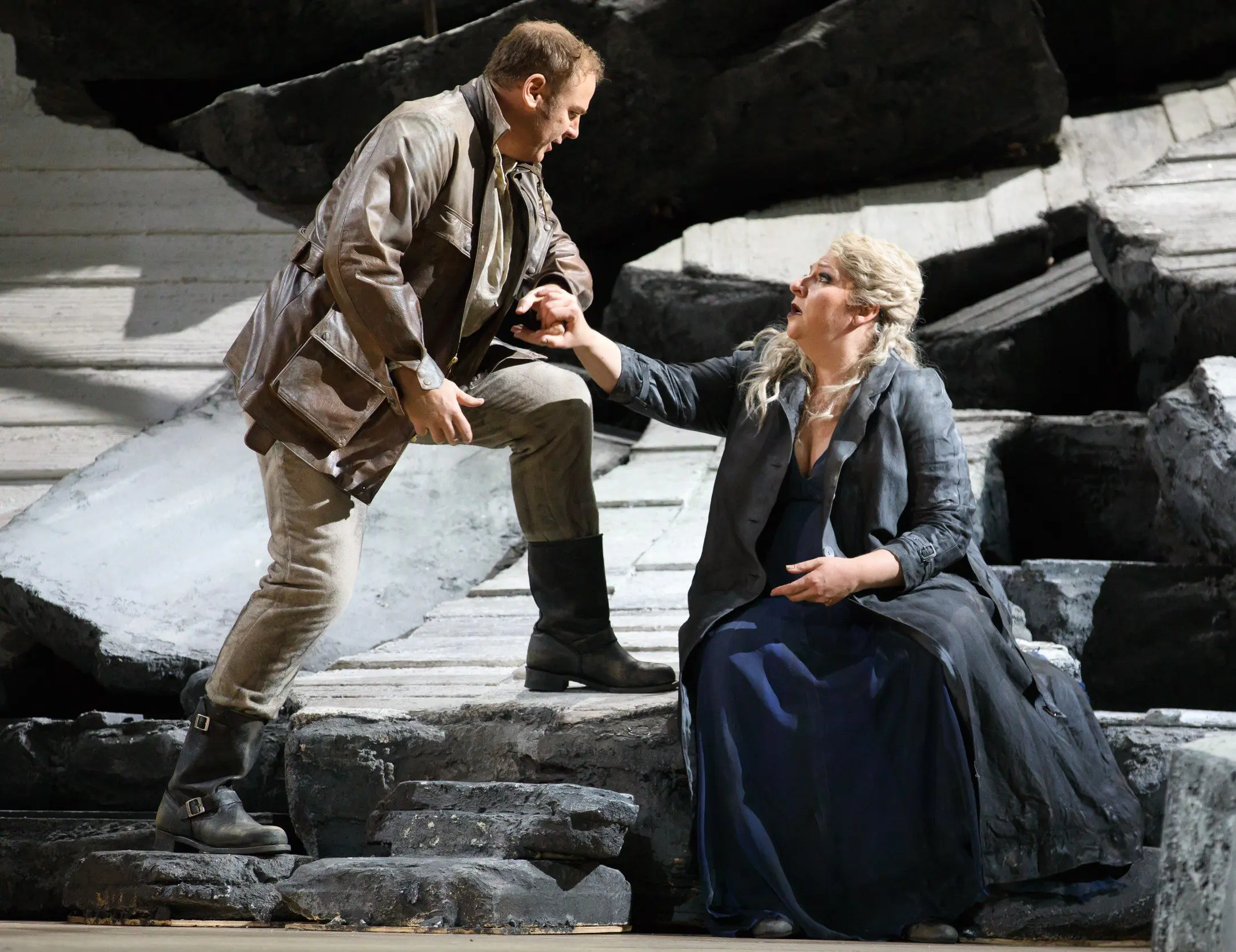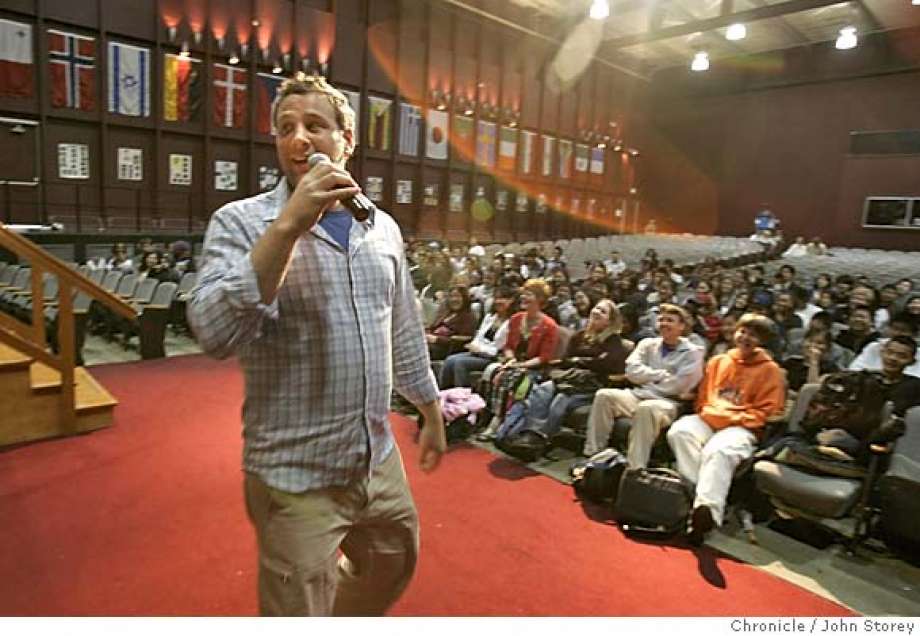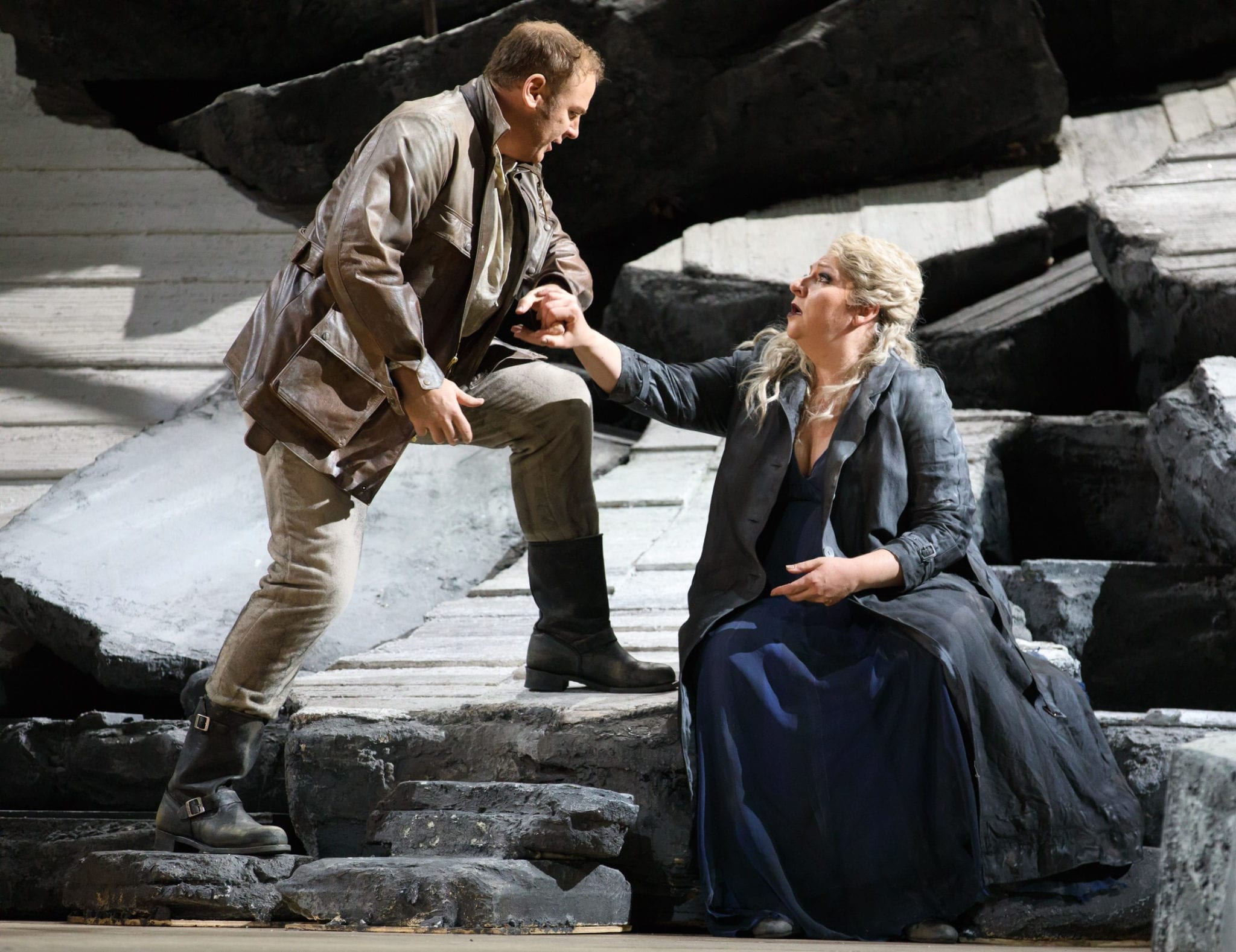
This blog post goes out to singers out there who believe they have the talent it takes to make a career but have had trouble breaking into the scene, especially if they’re over the traditional young artist age of 24-30.
This is a unique predicament and these special singers need to carve their own path at this point. Is it possible? Absolutely. But what must these singers do differently than a young singer who is fresh on the scene in order to stand out and make it work?
Networking
After a singer has taken every initiative to ensure their singing is at its absolute highest potential, through years of taking direction and taking to heart the feedback they’ve received from coaches and teachers, their next crucial career step is networking.
Networking gets you in the opera door, and gets you heard by influential people in the business who can put you up for certain opportunities. Knowing people in the opera world will get your talent out there and give you a shot. Not every contact will grant you a job, but by genuinely putting yourself out there to particular people, it could be career-changing.
Someone like a major voice teacher who is well-connected could be a valuable contact. Same with coaches and impresarios. There’s a constant conversation going on between these types of influential people and they know who’s who. Work with the voice teachers who are well-connected as well as coaches who either work at the opera companies you’d like to sing at or are one-degree of separation from them.
Work on these connections while you’re still developing. If you haven’t yet, start today. Like, get off this blog post and start drafting emails. It needs to become part of your career just like role preparation, warming up, or doing your make-up before a show. Write emails, send messages, update your site, start a newsletter, etc. The most successful singers have an understanding of networking and it has definitely played an instrumental role in their careers.
Your job is not just about singing pretty. Your job is about fostering relationships and becoming someone people want to work with. When someone who may be a good contact in the business comes to town for a conference, masterclass, or performance, contact them. Work at gaining knowledge and forging relationships.
It shows these people your growth and allows them to hear your progression. Important people need to hear you sing every few years because your voice changes a lot.
When someone contacts me, I actually feel special, especially if I’ve met them before. It makes someone become more than just another singer to me, they become a person. I feel flattered that someone took the time to write to me—I never feel like they’re “bothering” me.
On numerous occasions I’ve gotten emails from chorus members I’ve worked with, university students I’ve given master classes at, fans of my performances, etc. and they write me to say they want a lesson or some input on their singing career. I remember those people and get to know them, as compared to someone I’ve never heard of or met before.
For Voices that are Large and in Charge
One reason why you may need to start your career later than others is that you have a larger voice that needs more time to develop.
If it’s not yet time to break onto the scene, keep killing it by taking voice lessons and auditioning for YAPs or Artist Diplomas. People are waiting on you just like you are waiting for yourself. You’re like a high-end chef aging a Kobe steak for years and you’re waiting to take it off the rack at the right time to serve customers. Just like your voice, there’s no rushing the process.
There are people waiting for you to mature and they’re chomping at the bit for you. You need to create the idea that you’re a commodity. You are in short supply and high demand.
The people who can get you in the door are the coaches and voice teachers you’ve worked with all those years. Perhaps even a conductor, director, or someone in arts administration has taken a liking to you. Opportunities are everywhere for raw talent. Like I said before, begin investing in your career by networking while you’re developing.
Your agent should be holding back the floodgates for Sieglindes and Siegfrieds until the right time, and they will help you decide when that will be. If you’re unsure about your timeline, look at the careers of other large voice types and take note of what they were singing at a similar point as you.
Opportunities for You
If you’re 30 or older, you need a different path than other younger singers and your opportunities are going to differ. No two career paths are the same and each is unique. I’d suggest major YAPs, smaller house gigs, and European Fest contracts as viable options for you.
For the Euro Fest route, it’d be best to find a European agent that has faith in your voice. They can help you set up a tour of smaller Euro houses (mostly Germany, Switzerland, and Austria).
I know the temptation to self-evaluate and compare yourself to others is there. I will say that self-awareness is your friend, but comparing yourself to others at this point could be your enemy. It could add an unnecessary pressure. Most importantly, I encourage you to be honest and competitive with yourself.
I firmly believe that if things aren’t going the way you wish them to (and you’re not a large voice type), you need to shake things up. For example, if you think your voice teacher is the best in the world and you haven’t gotten a gig in a year despite auditioning, they’re not working for you. Sorry for my bluntness, but this is applicable to most areas of your life. If you’re not getting the results you want, then change you must.

Money, Honey
Not succeeding at a younger age creates financial burdens other singers might not have. You’ve probably had a job for a few years that supports your singing career. You’re a hard worker but you’re doing something that’s not your passion. This work gives you a financial cushion, especially if you have others depending on you, but don’t lose focus on your dreams.
If you’ve got that supplemental job and you’re not spending that money on voice lessons, because of understandable circumstances such as rent, bills, family, etc., then self-assess your priorities and see how you can invest more of your time and money into your dream. Maybe save up to take a longer break from work by taking off a few months to intensely focus on your singing.
You Don’t Know Until you Try
Some singers get their big break at 24. I’ve seen those flare-ups and a lot of them don’t last. Some do, though, and it’s easy to compare yourself with that. The goal is to not be a phase but instead have sustainability over a career.
When you ask yourself about the possibility of making your dreams come true, it’s crazy to realize that it’s mostly up to you whether you’ll realize it or not. Not one single person can do it for you. They can grant you an opportunity to share your talent with the world but when that opportunity comes, you have to be ready.
What do you think? Did you find this article interesting, entertaining, or helpful? Feel free to chime in with a comment below.

Great article! I got a late start myself. I was 28 years old with a non music BA and a career teaching high school when I gave it up to return to music school. I had studied voice privately in undergrad as a non major and developed a love for opera but figured I would just finish my BA and sing just for fun. I graduated and continued to sing in several choirs and even did some paid staged work, but only as a chorus singer. If I wanted to go beyond that, I would need better technique and better musicianship. After a peak experience where I got to meet have an audience with my favorite singer after her farewell recital, I knew I had no choice but to try to do what she was doing in that recital. I could spend the rest of my life thinking “what if” or I could try. Even if I failed it would be better than “what if”. Immediately I started looking at programs and teachers . After a long search I found a teacher at a decent music school who was willing to work with me but cautioned I wouldn’t be singing arias anymore … we had to start from scratch. It was very humbling. I was in school with 18 year olds who had better technique than I did as my voice was a wreck from lots of choral singing , teaching in a public inner city high school, and just bad technique that my teacher from undergrad couldn’t fix . At the end of the four years the voice had improved greatly, but the technique still wasn’t reliable in the upper register and after a failed graduate graduate school audition to a second rate music school, I went back to my old day job and decided to stop singing for good because clearly , I lacked the talent. I had failed but hey … I tried and that would have to be good enough for me. . That lasted about a month before I began singing as a church soloist and nine years later I landed my first professional operatic role with a local company shortly before I turned 40. I now have a phenomenal voice teacher and regular gigs and the voice can do things I never dreamed it could. I perform twice a week as a cabaret singer at a local supper club while still managing occasional operatic roles when there is one for me. (This is before Covid as I haven’t sung in public since March 14th). The path for an older singer might look different but never underestimate the power of work ethic and perseverance. Slow and steady wins the race!
Absolutely right
Thank you so much for sharing these words. I’m a 29 year old tenor and have been taking singing lessons casually for a few years. At 24 a professional opera singer reccomended me to consider a professional opera career, but I didn’t take it seriously, and circumstances did not permit . From last year, I started performing regularly in amature productions, concerts and some competitions. That’s when I started to consider taking singing seriously, as I have loved it so much since as young as I remember. There’s so much self doubt, comparing to most young opera singers who are 5 years or more younger than me, my voice is quite underdeveloped. My current plan to to go to a conservatory to study either local (Australia), or in Europe (Germany or Austria). I’m willing to take the risk and use 5-10 years of study and hardwork to pursue a professional career. However, the age factor is always haunting me. Most young artist programs and competitions have age limit. Some Germany Hochschulen won’t even accept older candidates. Nonetheless, I’m not going to give up. Your words really echo with my thoughts- anything humanly possible is possible. I have to make it happen for myself. Life could be long or short, who’s counting anyway.
May I ask for suggestions regarding my study plan please? That would be tremendously helpful. Thank you.
Nick
Dear Lucas,
This is such a fantastic blog! As someone in that phase of change from young artist to professional (I recently turned 31 and made my debut whilst understudying at glyndebourne last month) this post really hits home. Thanks for the great advice and being a generous human alongside the artistry.
Suzy Fischer
You’re very welcome. I wish you lots of success!
This was timely given the inner monologue I’ve been having lately. Lucas, I have a few questions if you don’t mind. But please allow me to preface this by saying I’m not complaining or trying to act entitled.
1. Do you have any advice on how to network? any particular approach, words or phrases to use or stay away from? You say you are flattered when someone reaches out to you. I don’t feel people are flattered when I try to connect with them. If I even get a response, I feel it was a begrudged response “fine, I’ll answer your email, but that’s it” or kind of the quintessential “I’ll let you know…” response. I feel all my attempts to network and develop relationships fall flat and go no where and I don’t understand why.
2. what do you say to someone with no money? Without divulging too much of myself publicly, let’s just say I have not had a decent job or been able to pay rent on time for well over a year now. Paying for lessons or coachings is simply not an option. there literally are no funds for me to do so.
I feel pretty desolate these days and I don’t know what to do.
This blog really hit home for me. I’m a 36 year old tenor who only began studying voice about 5 years ago. Even though I have people around me who support me it is really nice to hear a professional singer say that it is not too late for me. Thank you so much!
It’s absolutely possible, just if you work smart and put in that effort towards getting your name out there. Best of luck!
Lucas thank you so much for this post! Even as a young singer (I’m only 23) it’s so easy to feel “behind” or to feel like we aren’t where we should be yet. This piece gives a lot of perspective that both late-bloomers and young singers will find really valuable. Thank you!
Thank you Judelle for your kind words. I’m in the same group as you, so what I write is only what I’ve learned along the way. Best of luck to you.